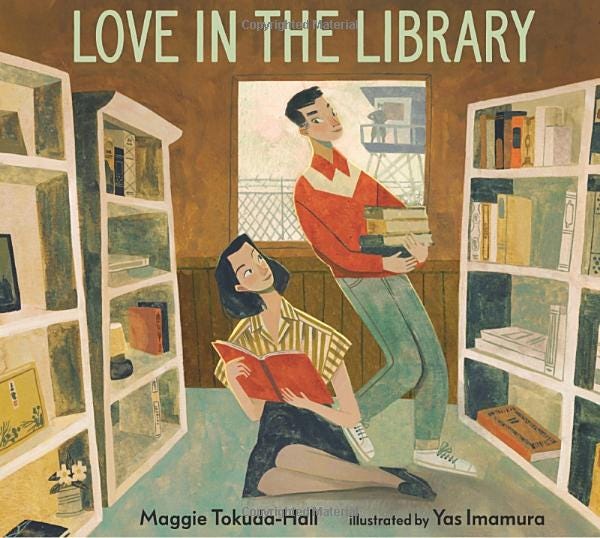Americans Don’t Mind Hearing And Learning About Racism — They Just Don’t Like The Weird And Religiously Tinged Way Educated Liberals Talk About It
Lessons from a publishing controversy
I find this article by Alexandra Alter and Elizabeth A. Harris in The New York Times really interesting: “Asked to Delete References to Racism From Her Book, an Author Refused.”
The subheadline reads, “The case, involving Scholastic, led to an outcry among authors and became an example of how the culture wars behind a surge in book banning in schools has reached publishers.”
Race! Censorship! Book banning! This has it all.
Here’s the setup:
It was the most personal story that Maggie Tokuda-Hall had ever written: the tale of how her grandparents met and fell in love at an incarceration camp in Idaho that held Japanese Americans during World War II.
The book, called “Love in the Library,” is aimed at 6- to 9-year-olds. Published last year by a small children’s publisher, Candlewick Press, it drew glowing reviews, but sales were modest. So Tokuda-Hall was thrilled when Scholastic, a publishing giant that distributes books and resources in 90 percent of schools, said last month it wanted to license her book for use in classrooms.
When Tokuda-Hall read the details of the offer, she felt deflated — then outraged. Scholastic wanted her to delete references to racism in America from her author’s note, in which she addresses readers directly. The decision was wrenching, Tokuda-Hall said, but she turned Scholastic down and went public, describing her predicament in a blog post and a Twitter post that drew more than five million views.
Tokuda-Hall’s revelations sparked an outcry among children’s book authors and brought intense scrutiny to the editorial process of the world’s largest children’s publisher. The blowup came at a time when culture wars are fueling efforts to ban books in schools — particularly books on race or sexuality — and raising questions about whether already published works should be re-edited to remove potentially offensive content.
“We all see what’s happening with this rising culture of book bans,” Tokuda-Hall said. “If we all know that the largest children’s publisher in the country, the one with the most access to schools, is capitulating behind closed doors and asking authors to change their works to accommodate those kinds of demands, there’s no way you as a marginalized author can find an audience.”
Scholastic moved quickly to contain the fallout. It apologized to Tokuda-Hall and the illustrator, Yas Imamura, and offered to publish the book with the original author’s note. Tokuda-Hall turned them down, saying that she was not convinced by the company’s efforts.
The company also delayed production of the collection that would have included “Love in the Library,” which was likely to include around 150 books by or about Asian American, Native Hawaiian and Pacific Islanders, while they evaluate what went wrong.
As you can imagine, this also became a major Twitter Event among some folks in the publishing world — you couldn’t come up with a more outrageous example of conservative attempts to erase any sort of unflinching look at American racism, nor of a major corporate entity responding with utter cowardice.
Except I think this is all significantly more complicated than that! A few different things are being conflated, and, as usual, important considerations about class and education are being obscured in favor of totalizing narratives.
Keep reading with a 7-day free trial
Subscribe to Singal-Minded to keep reading this post and get 7 days of free access to the full post archives.


